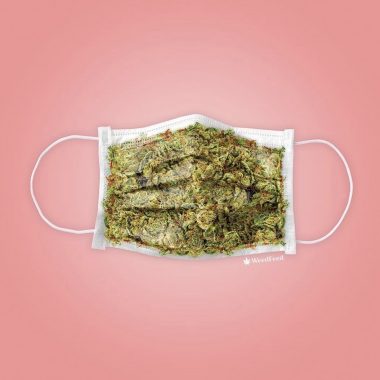
The Massive Disconnect Between Medical Marijuana and Healthcare.
Getting admitted into your state’s medical marijuana program is taking your health into your own hands. You are choosing how you want to live your life and how you want to treat your illnesses.
Colds, the flu, as well as other diseases and illnesses, will never disappear, and you are always at the risk of getting something. This could mean it requires medical attention. What happens if you get admitted to the hospital for a hernia surgery but use medical Marijuana for your PTSD. Will you have access to it? Can you continue to use it? Will you be forced to take a pharmaceutical drug in place of cannabis?
Medical Marijuana is prohibited from use in the hospital setting. This is because Marijuana at a federal level is considered an illegal substance. The DEA still has Marijuana listed as a Schedule 1 drug, meaning they recognize it to have high substance abuse and has no medicinal benefit. Numerous studies have proven this theory wrong, and yet the federal government has done absolutely nothing to change this. Dropping Marijuana to a lower schedule will be the start of the cannabis revolution. Until that day happens, we need to understand the laws and rules in place today. Therefore I wanted to learn more about the rules and regulations surrounding medical marijuana patients using their medical Marijuana in a hospital setting.
Cannabis use is prohibited in hospitals; hospitals are subject to follow federal regulations, and allowing the use of a federally illegal substance breaks federal law. Hospitals are not only risking breaking the law but also the loss of federal funding if they permit the use of medical Marijuana due to its restricted federal status (“Marijuana in the Health System,” 2019).
Having cancer is a qualifying condition for most state medical marijuana programs. However, cancer patients are not allowed to use it while admitted to the hospital. Rotating nurses in the Intensive Care Unit at Sloan Kettering, one of the top-ranked cancer hospitals in the nation, said cannabis use is forbidden there (Assaf, 2018).
Prohibiting cannabis at hospitals undermines the medicinal benefits of the plant and the freedom and right as a human for the patient to make their own decisions regarding their health.
Let’s say you are a patient using medical Marijuana to treat your chronic pain and get admitted into the hospital; the hospital will not allow you to use cannabis to manage your pain. Instead, they will prescribe your drugs from their pharmacy that can be dangerous and highly addictive. This type of behavior encourages the continued use of pharmaceuticals, which are dangerous and addictive.
Some progressive hospitals are making strides in implementing the usage of medical Marijuana in their hospital policy. The Mayo Clinic recognizes medical cannabis as having medicinal benefits for several conditions. In Minnesota, patients in the Minnesota Medical Cannabis program are permitted to continue cannabis use during their visit or hospital admission at the Mayo Clinic (Weinberg, 2020).
Another hospital in Minnesota, Hennepin County Medical Center (HCMC), also permits the use of cannabis for patients in the program. Only edibles and tinctures are allowed for use in the hospital (Collins, 2019).
Ultimately prohibiting the use of medical Marijuana leads to ethical questions regarding healthcare. “In order for doctors to best manage illnesses carefully, and to the best of our abilities, we must know as much as we can [about] what a patient is taking. But it’s very common for patients to sneak cannabis in back rooms or under the radar, which is really unfortunate for everyone. I think the hospital perspective should be embracing what patients find helpful.” (Weinberg, 2020) Dr. Benjamin Caplan, representative of the group Doctors for Cannabis Regulation and founder of the CED Clinic. “To have cases where patients are having seizures in a hospital, and they can’t get the medicine that they want (and find helpful) as an outpatient is a real cultural disconnect for the medical establishment. I think the solution is for people is not to sneak around; the solution is for hospitals to open their arms to patients who finds a medication helpful.” (Weinberg, 2020)
There is a massive disconnect between medical Marijuana and healthcare. Cannabis is a fundamental human and medical right. Changing the status of Marijuana as a Schedule 1 drug will allow all American citizens to benefit from the beautiful plant.
Sources:
- Assaf, J. (2018, June 18). A Plea for Cannabis in Hospitals. Retrieved from https://healthcareinamerica.us/a-plea-for-cannabis-in-hospitals-4497c1048a5a
- Collins, T. R. (2019, April 4). Medical cannabis brings complexity to hospitals. Retrieved from https://www.the-hospitalist.org/hospitalist/article/197573/mixed-topics
- Marijuana in the Health System. (n.d.). Retrieved from https://www.advisory.com/research/pharmacy-executive-forum/resources/2019/marijuana-in-the-health-system?WT.ac=Inline_PEF_Resource_x_x_x_CTC_2019Apr16_Eloqua-RMKTG+Blog
- Weinberg, B. B. (2020, January 16). Cannabis Use in Hospitals Is Still Prohibited, Despite State Medical Pot Programs. Retrieved from https://cannabisnow.com/cannabis-use-in-hospitals-is-still-prohibited-despite-state-medical-pot-programs/